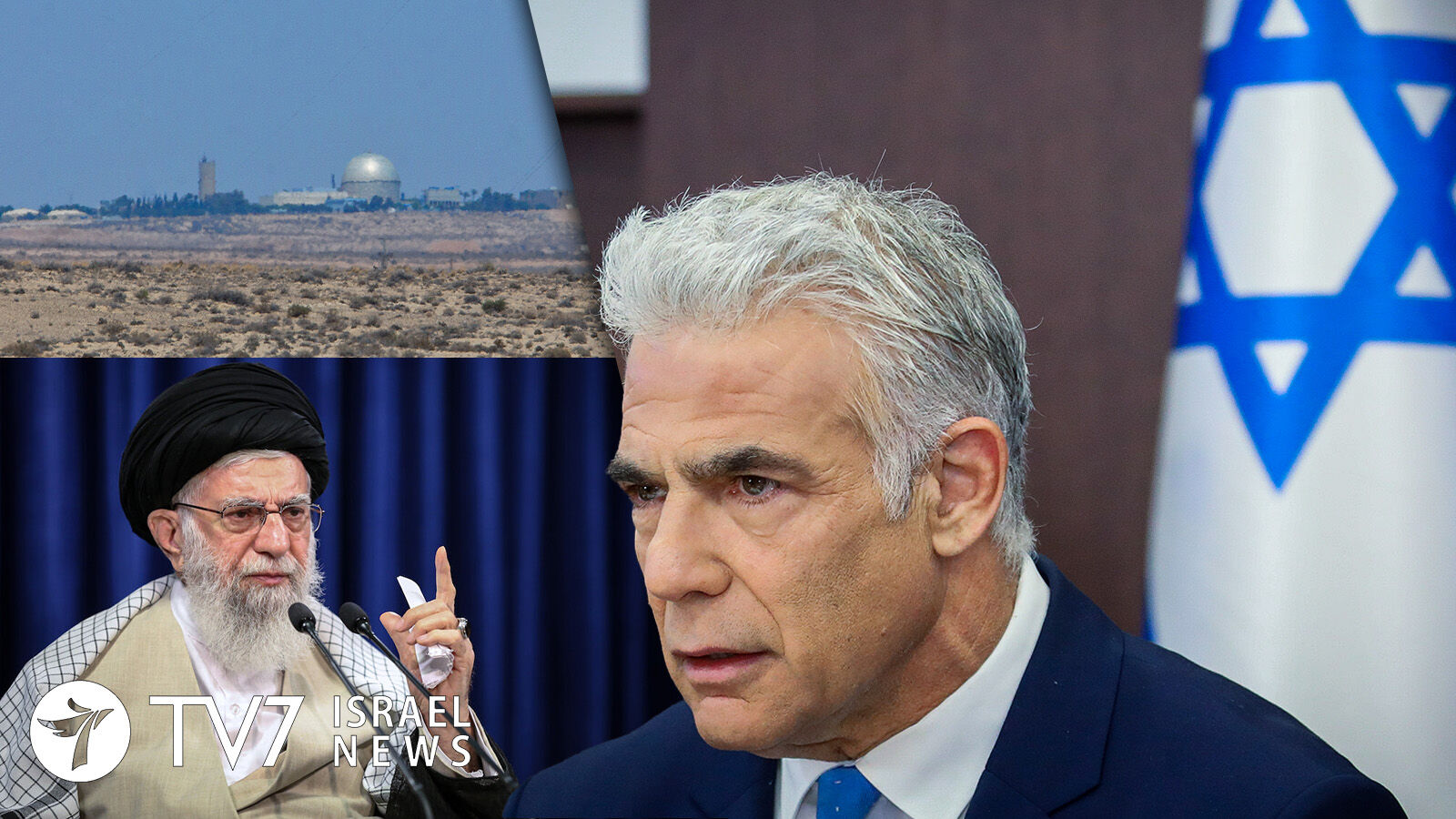The Israeli Prime Minister made the remarks during an addressed at a ceremony marking the appointment of the new Israel Atomic Energy Commission (AEC) director.
By Jonathan Hessen and Erin Viner
The event at the Prime Minister’s Office (PMO) honored of outgoing Brig.-Gen. (Ret.) Zeev Snir, who is stepping down after seven years as AEC Director and 49 years in the security establishment and welcomed incoming AEC Director Brig.-Gen. (Ret.) Moshe Edri, who has served in the IDF for 31 years. Over the past 11 years, he has served in various senior positions in the security establishment.
Even though Israel has never acknowledged possession of atomic bombs, it is presumed to have acquired such weaponry as a deterrent from hostile neighbors – with an estimated accumulated stockpile ranging between 80 to 400 warheads. In a policy of deliberate ambiguity, Israel will only confirm that it built what is today known as the Shimon Peres Negev Nuclear Research Center near the southern town of Dimona, which it maintains is a scientific facility.
“(First Israeli Premier David) Ben Gurion founded the AEC in 1952; it took true vision to do so. The simplest meaning of ‘vision’ is the ability to take an idea and pour into it organization, strength, the right people, long-term thinking and considerable devotion to detail. That’s what’s in front of me right now,” said Prime Minister Lapid.
“The operational arena in the invisible dome above us is built on defensive capabilities and offensive capabilities, and what the foreign media tends to call ‘other capabilities.’ These other capabilities keep us alive and will keep us alive so long as we and our children are here,” underscored the Israeli leader.
Concluding his remarks by thanking the AEC chiefs, Lapid said, “We are proud of you and we thank you. The fate of the people of Israel is in the right hands.”
Alternate Premier Naftali Bennett also alluded to Jerusalem’s enhanced preparedness – particularly concerning a nuclear armed Iran.
“One year ago, we made a series of decisions, the goal of which was to sharpen our preparedness to deal with the Iranian nuclear issue. We allocated vast resources to close gaps that were causing us to lose sleep. The Iranians are making progress but Israel has been working at full capacity over the past year. I know that you will continue to work regardless of the political turmoil in the country. Our future and our security for generations, depend on it,” he said.
New AEC Director Edri expressed that, “A sense of mission is a way of life, a highly significant action that stems from inner conviction and not the expectation of personal gain. Today, I have been given the opportunity by the Prime Minister, at a very special time, to continue the mission and lead an important and unique organization – the AEC – in the coming years, and thereby continue as a member of the large group of people that are responsible of the security, resilience and future of the State of Israel.”
The mere insinuation of Israel’s strategic capabilities by Jerusalem’s political leadership is frowned upon by the country’s defense establishment.
Moreover, in conversations with TV7, former key officials of the Atomic Energy complex responded with criticism to what they consider ‘an unwise choice of words and context.’ Nevertheless, it is equally important to note that the remarks by Prime Minister Lapid and Alternate Premier Bennett were made several hours after Iran’s Atomic Energy Organization (AEOI) Spokesman Behrouz Kamalvandi announced the activation of hundreds of advanced centrifuges – which is far beyond any civilian application.
The AEOI Spokesman justified the move by claiming that it abides by the Iranian Parliament’s “Strategic Action Law” which aims to pressure the West to lift its crippling sanctions against the Ayatollah Regime and preserves Iran’s “national interests.” And while the Islamic Republic claims to be eager to revitalize the 2015 nuclear agreement – it is not willing to see it through unless all of its non-nuclear related demands are met. “The nuclear talks’ distance from culmination into an agreement hinges on the US political decision. Iran is indeed considering an agreement and hopes it will come to terms soon. However, Iran will not act emotionally and impulsively, and will consider the fundamental interests of the country,” Kamalvandi proclaimed.
The latest Iranian nuclear-related advancements were implemented on the day when top diplomats of signatory-states of the 1970 nuclear Non-Proliferation Treaty (NPT) met in New York City on the margins of the 10th Review Conference at the United Nations. When asked if Lapid’s remarks were timed for the conference, or whether Israel had sent an observer as it has in the past, the PMO had no immediate response.
Israel has been leading regional calls for world powers to crack down on NPT-signatory Iran’s suspected use of civilian nuclear technologies as cover for military designs. While Tehran denies wrongdoing, the matter was a prevalent theme of addresses to the plenum by world dignitaries as they affirmed their respective countries’ commitments to the NPT.
“The continued expansion of the Iranian nuclear program is of great concern to us,” stressed German Foreign Minister Annalena Baerbock, adding, “Iran has no justification for many of its nuclear activities.”
US Secretary of State Antony Blinken reiterated the Biden Administration’s desire to revive the 2015 Joint Comprehensive Plan of Action nuclear deal with Iran, as “the best outcome for the United States, for Iran, for the World.”
The top American diplomat went on to point out that this past January, President Biden and the leaders of the other NPT nuclear weapon states – China, France, Russia and the United Kingdom – all affirmed the principle and I quote, ‘a nuclear war cannot be won and must never be fought.’”
